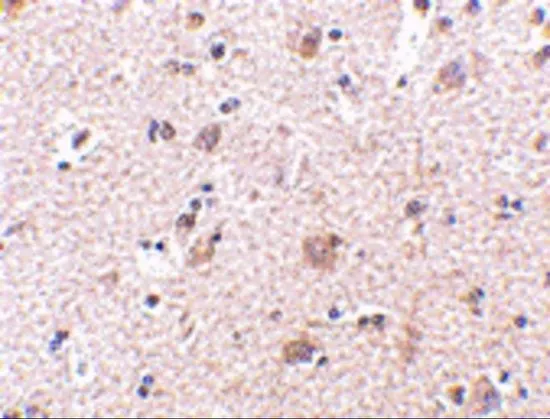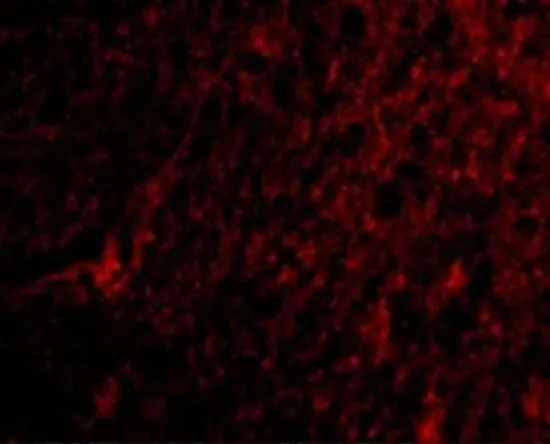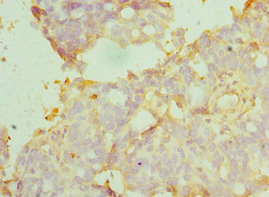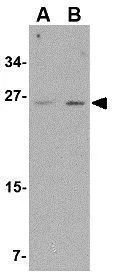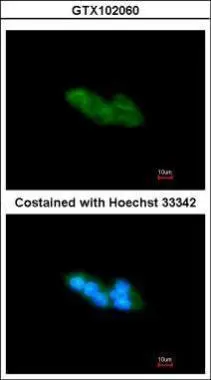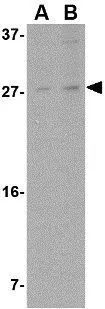
WB analysis of rat brain tissue lysate using GTX31325 ARMET antibody. Working concentration : (A) 1 and (B) 2 μg/ml
ARMET antibody
GTX31325
ApplicationsWestern Blot, ELISA, ImmunoHistoChemistry, ImmunoHistoChemistry Paraffin
Product group Antibodies
ReactivityHuman, Mouse, Rat
TargetMANF
Overview
- SupplierGeneTex
- Product NameARMET antibody
- Delivery Days Customer9
- Application Supplier NoteWB: 1 - 2 microg/mL. IHC-P: 2.5 microg/mL. *Optimal dilutions/concentrations should be determined by the researcher.Not tested in other applications.
- ApplicationsWestern Blot, ELISA, ImmunoHistoChemistry, ImmunoHistoChemistry Paraffin
- CertificationResearch Use Only
- ClonalityPolyclonal
- Concentration1 mg/ml
- ConjugateUnconjugated
- Gene ID7873
- Target nameMANF
- Target descriptionmesencephalic astrocyte derived neurotrophic factor
- Target synonymsARMET, ARP, DDDS, mesencephalic astrocyte-derived neurotrophic factor, arginine-rich, mutated in early stage tumors
- HostRabbit
- IsotypeIgG
- Protein IDP55145
- Protein NameMesencephalic astrocyte-derived neurotrophic factor
- Scientific DescriptionThe protein encoded by this gene is localized in the endoplasmic reticulum (ER) and golgi, and is also secreted. Reducing expression of this gene increases susceptibility to ER stress-induced death and promotes cell proliferation. The protein was initially thought to be longer at the N-terminus and to contain an arginine-rich region but transcribed evidence indicates a smaller open reading frame that does not encode the arginine tract. The presence of polymorphisms in the arginine-rich region, including a specific mutation that changes the previously numbered codon 50 from ATG to AGG, have been reported in a variety of solid tumors; however, these polymorphisms were later shown to exist in normal tissues and are thus not tumor-related. [provided by RefSeq, Jun 2010]
- ReactivityHuman, Mouse, Rat
- Storage Instruction-20°C or -80°C,2°C to 8°C
- UNSPSC41116161

